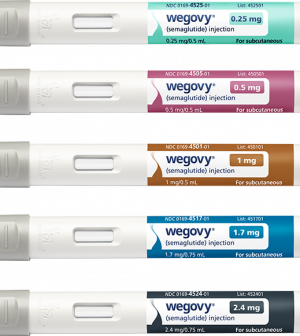- Could Your Grocery Store Meat Be Causing Recurring UTIs?
- Are You Making This Expensive Thermostat Error This Winter?
- Recognizing the Signs of Hypothyroidism
- 10 Strategies to Overcome Insomnia
- Could Artificial Sweeteners Be Aging the Brain Faster?
- Techniques for Soothing Your Nervous System
- Does the Water in Your House Smell Funny? Here’s Why
- Can a Daily Dose of Apple Cider Vinegar Actually Aid Weight Loss?
- 6 Health Beverages That Can Actually Spike Your Blood Sugar
- Treatment Options for Social Anxiety Disorder
It’s Safe to Take GLP-1 Weight Loss Meds Before Surgery: Study

Despite recent concerns that taking Ozempic, Wegovy or other GLP-1 medications might be unsafe before a surgery, a new review has uncovered no such danger.
The issue arose because weight-loss drugs slow gastric emptying. The thought was that food might linger in the stomach so patients might be at higher risk of aspirating food particles and choking while under anesthesia.
But a new review of data from 15 randomized studies found only a minimal change in gastric emptying among GLP-1 users, not enough to pose any danger during surgery.
“While GLP-1 medications affect gastrointestinal tract motility [movement], their quantified impact may not be as significant as previously assumed,” said study senior author Dr. Walter Chan.
“It appears safe to continue these medications before a procedure requiring anesthesia or sedation, with minor precautions like abstaining from solid food for a day to minimize any potential risk of aspiration,” said Chan, who directs the Center of Gastrointestinal Motility at Brigham and Women’s Hospital in Boston.
His team published its findings in the June issue of the American Journal of Gastroenterology.
As the researchers explained, guidelines around GLP-1 use prior to a surgery are mixed. The American Society of Anesthesiologists recommends that patients stop taking GLP-1 medications for up to a week before elective surgeries and procedures.
On the other hand, the American Gastroenterological Association suggests proceeding with any planned surgery, but to to take standard pre-surgery precautions, like abstaining from solid food.
The new review gathered data from 15 randomized trials involving a total of 652 people. Researchers measured gastric emptying in patients taking a range of GLP-1 medications.
Patients are already asked to abstain from solid food for eight hours prior to a surgery, the researchers noted. GLP-1 use appeared to slow gastric emptying by a mere 36 minutes.
As well, “none of the participants in any of the studies analyzed by the team experienced pulmonary aspiration” linked to delayed stomach emptying, the team explained in a Brigham news release.
“Based on our study, we recommend that guidelines be updated with the following precautions for GLP-1 RA users undergoing endoscopic procedures: continue therapy, follow a liquid-only diet the day prior and adhere to standard pre-anesthesia fasting,” said study lead author Dr. Brent Hiramoto, a senior gastroenterology fellow at Brigham and Women’s Hospital. “Until more data on solid diets is available, a conservative approach with a liquid diet while continuing therapy is advisable.”
More information
Find out more about GLP-1 drugs at the Mayo Clinic.
SOURCE: Brigham and Women’s Hospital, news release, June 4, 2024
Source: HealthDay
Copyright © 2026 HealthDay. All rights reserved.










